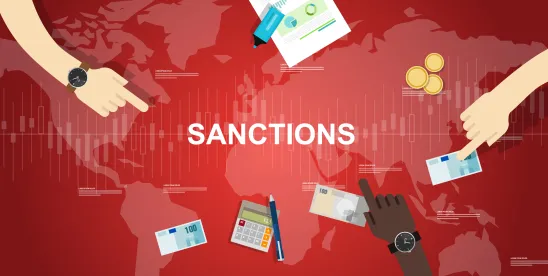On February 6, 2025, President Donald Trump issued an Executive Order titled "Imposing Sanctions on the International Criminal Court" (the "E.O."). The E.O. was issued in reaction to the International Criminal Court's (ICC) assertion of jurisdiction over non-member states, their leaders and personnel.
The ICC
The ICC (not to be confused with the United Nations International Court of Justice) is a treaty-based entity established in 2002 under a multilateral treaty known as the Rome Statute. The ICC has 124 member countries. About 40 countries, including the United States, China, Russia, Egypt, Israel, Saudi Arabia, Sudan, Singapore, Turkey, India, and Indonesia are not members.
The ICC has asserted jurisdiction over, and has opened preliminary investigations into personnel of, the United States and Israel (both of which are non-member states), and has issued arrest warrants for Israeli Prime Minister Benjamin Netanyahu and Former Minister of Defense Yoav Gallant.
The E.O.
The E.O. finds that the ICC has engaged in “illegitimate and baseless actions” that target the United States and certain allies, including Israel. The E.O. notes that “[t]he ICC has no jurisdiction over the United States or Israel, as neither country is party to the Rome Statute or a member of the ICC.” The E.O. further notes that “[n]either country has ever recognized the ICC’s jurisdiction[.]”
The E.O. cites the American Servicemembers Protection Act of 2002, 22 U.S.C. 7421 et seq., which Congress enacted “to protect United States military personnel, United States officials, and officials and military personnel of certain allied countries against criminal prosecution by an international criminal court to which the United States is not a party.”
The E.O. declares that the ICC's actions set a dangerous precedent, endangering U.S. military and other personnel by exposing them to harassment, abuse, and possible arrest, which threatens U.S. sovereignty and undermines U.S. national security and foreign policy.
The E.O. cautions that “the ICC and parties to the Rome Statute must respect the decisions of the United States and other countries not to subject their personnel to the ICC’s jurisdiction, consistent with their respective sovereign prerogatives.”
The Sanctions
The E.O. imposes sanctions on Karim Kahn, the Chief Prosecutor of the ICC, and authorizes the imposition of sanctions on additional persons that “have directly engaged in any effort by the ICC to investigate, arrest, detain, or prosecute a protected person without consent of that person’s country of nationality[.]”
A ”protected person” is defined to include any U.S. person (unless the United States formally consents to the exercise of jurisdiction over that person or becomes a party to the Rome Statute); any foreign person who is a citizen or lawful resident of a U.S. ally that is not a party to the Rome Statute and that has not consented to the exercise of jurisdiction over that person; and officials of the U.S. government and U.S. allies.
The principal sanctions imposed on Khan (and to be imposed on future designees) are:
- Blocking (i.e., freezing) of property and interests in property of the sanctioned person(s) that are in the United States, or that are or come within the possession/control of any U.S. person; and
- Prohibiting any U.S. person from providing funds, goods, or services to the sanctioned person(s), or from receiving funds, goods, or services from the sanctioned person(s).
U.S. sanctions are potent tools that lie at the intersection of law, commerce, and international relations. While this particular deployment of sanctions is noteworthy because of its unusual nature, there are thousands of sanctions rules and regulations that govern many facets of international commerce. U.S. and foreign companies should be mindful of their compliance obligations.
Alex San Martin contributed to this article



 />i
/>i

